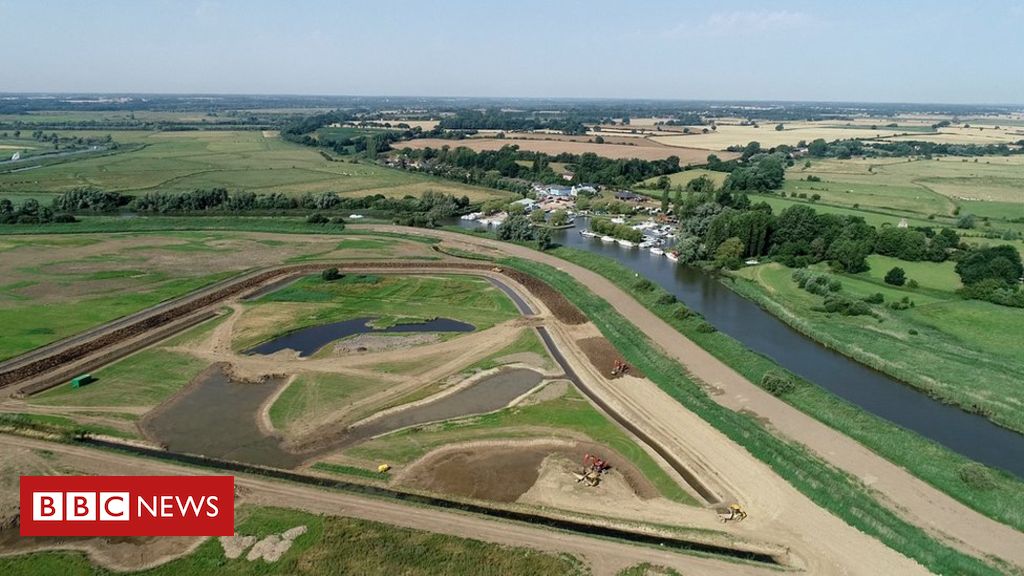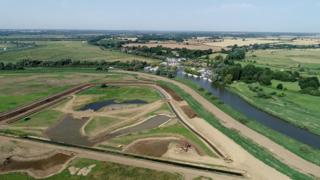Carlton Marshes, near Lowestoft, has been expanded as part of a £5m project
A newly-expanded 1,000-acre (404-hectare) wildlife reserve backed by Sir David Attenborough could reduce the flooding risk to nearby homes.
Suffolk Wildlife Trust has spent £5m adding 484 acres (196 hectares) to its Carlton Marshes reserve near Lowestoft, Suffolk.
It said the new reedbed areas could absorb large amounts of water from surge tides, protecting properties.
Sir David has called the project a “unique opportunity” for wildlife.
Diggers and bulldozers have been on the site since April, creating new reedbed, fen and wetland areas for birds and other animals, plus a visitor centre
Matt Gooch, the trust’s Broads sites manager, called it “habitat creation on a landscape scale”.
The new areas lie between the River Waveney and the Oulton Dyke, which connects the river with Oulton Broad in Lowestoft.
But he said the landscaping could also provide run-off areas during surge tides, in which the river bursts its banks.
Mr Gooch said there had been several such instances in the past 10 years, most recently in 2019.
“The reedbed creation we are doing here will allow for those areas to be overtopped by the river and hopefully minimise the impact on places like Oulton Broad.”
Image copyright
PA
Sir David Attenborough is president emeritus of The Wildlife Trusts
The landscaping project is intended to attract birds including marsh harriers, bitterns, common cranes, lapwings and redshanks.
Mr Gooch said climate change was a growing challenge, and the extension would make the reserve “more resilient”.
“For any wetland site a real difficulty going forward is we are reliant on water and rainfall, and those normal seasonal changes,” he said.
“A lot of the time we are reliant on winter rainfall that we can hold back and hopefully it doesn’t disappear with all this warm, sunny weather that we have.”
Image copyright
Suffolk Wildlife Trust/Kevin Elsby
The creation of shallow wading areas is likely to lead to an immediate increase in bird numbers, such as spoonbill (pictured), said the Trust
However, wildlife was already adapting, he said.
“Habitat creation projects show that birds will move into these new areas and take advantage of what they have on their doorstep.”
The work was funded by a £4m National Lottery Heritage Fund Grant, and £1m raised by the trust.
The project is due to be completed by spring next year.

















